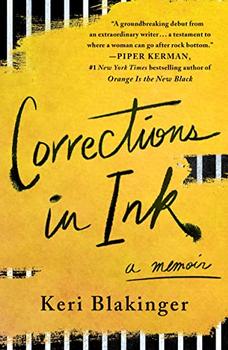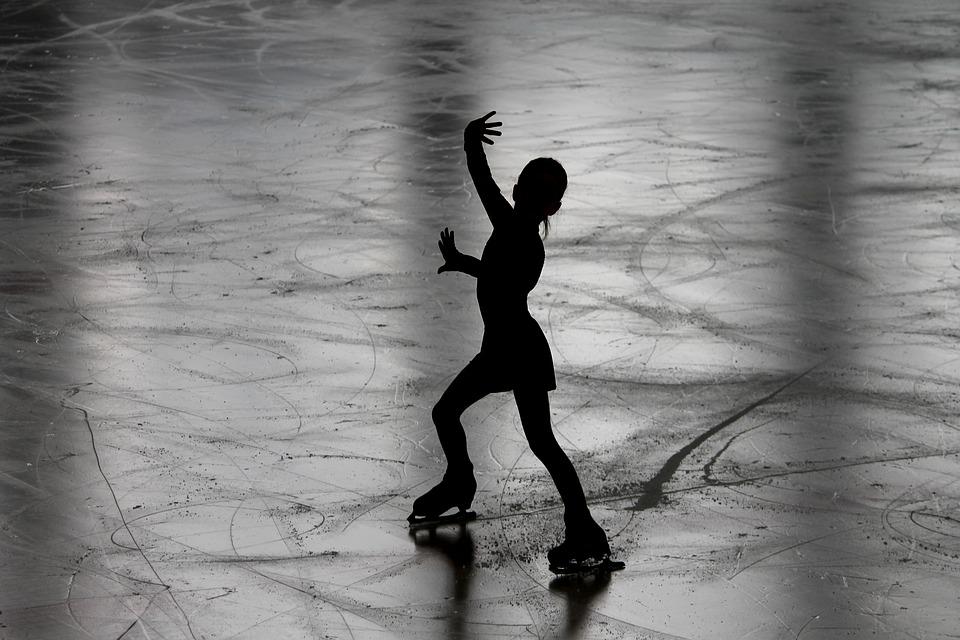Summary | Excerpt | Reviews | Beyond the Book | Read-Alikes | Genres & Themes | Author Bio

A Memoir
by Keri BlakingerThis article relates to Corrections in Ink
 A tiny, limber child, Keri Blakinger at the age of nine yearned to be smaller than her six-year-old dance classmate. To spite her health-conscious mother, Keri began sneaking brownies and cookies and the occasional Big Mac. Then, she would bike four blocks away and vomit in the bushes. "I've puked here so many times," she writes in Corrections in Ink, "that the whole building emanates a vomity aroma on rainy days. Other people can smell it while they walk by."
A tiny, limber child, Keri Blakinger at the age of nine yearned to be smaller than her six-year-old dance classmate. To spite her health-conscious mother, Keri began sneaking brownies and cookies and the occasional Big Mac. Then, she would bike four blocks away and vomit in the bushes. "I've puked here so many times," she writes in Corrections in Ink, "that the whole building emanates a vomity aroma on rainy days. Other people can smell it while they walk by."
Blakinger was well practiced in starving herself. It was something she would do now and again, a game of will. If she was successful in denying herself, she felt joy. If she couldn't resist a temptation, she became anxious.
"The less I ate, the more I thought about it. Sometimes I would chew up food and spit it out in the bathroom. Other times I would eat an entirely normal or very small amount of something—twenty jellybeans, or half a Reese's—and throw it up anyway."
Athletes like Keri, a competitive figure skater, begin training when they are very young. Keri started at seven years old (some skaters start as young as four). She was malleable and competitive, and the message she received was that smaller was faster, quicker, stronger. As sports psychologist Riley Nickols, director of the athlete treatment program at a St. Louis eating disorder clinic, explains, "People who struggle with eating disorders have a heightened attunement to their body, bodily sensations, and comparisons to others — all things already part of the athlete's psyche."
Figure skating has a particular problem with eating disorders because of the perception that thinner skaters are better skaters. "We see girls who are really young and thin and who do really well in our sport. Maybe that's why they're so skinny — because they're still children," says Josefin Taljegård, a Swedish skater who competed in the Beijing Winter Olympics, differentiating between what a child's body looks like and what an adult body has developed into.
Skater Gracie Gold has spoken about her journey through anorexia, including the pressure she felt from the skating community to lose weight and her choice to pull out of competitions to allow herself time for recovery, offering important insight to young skaters who wrestle with the demands of coaches and fans who want skaters thinner so they will rotate better. Ice dancer Kaitlin Hawayek, who has also had an eating disorder, says of young skaters, "their body is great exactly the way it is." Referring to critical comments people have made about her own body, 16-year-old skater Alysa Liu remarks, "Why are they looking at a minor's body that way? It's just a little weird and kind of wrong, obviously."
Figure skating is a sport in which skaters are judged by how they execute a variety of skills and how they look when they execute those skills. I remember when French skater Surya Bonaly, who is of African origins, competed in the 1992, 1994 and 1998 Winter Olympics. She was criticized for the size of her thighs and her body, which wasn't slim and tiny like most of her white and Asian competitors. She was shamed.
Elizabeth Daniels, a psychology professor at the University of Colorado who studies body image in sports, comments, "When…you are judged in this artistic way, the question becomes 'Does my body conform?' That, I think, increases the potential for eating disorders."
If smaller automatically translated into better, then 93-pound Keri Blakinger wouldn't have finished in fifth place at Nationals, but first or second. The truth of her finish was that her self-destructive attempts to adhere to body image expectations hurt her personally more than they helped her competitively. As Blakinger shows in her memoir, while size is a real factor in how skaters are judged in the sport, harming yourself to achieve a certain size isn't worth the deterioration of your physical and mental health. Excellence shouldn't be a derivative of how much you weigh or how delicately your bones show through your clothes.
Silhouette of figure skater, by Manfred Richter
Filed under Society and Politics
![]() This "beyond the book article" relates to Corrections in Ink. It originally ran in June 2022 and has been updated for the
June 2023 paperback edition.
Go to magazine.
This "beyond the book article" relates to Corrections in Ink. It originally ran in June 2022 and has been updated for the
June 2023 paperback edition.
Go to magazine.
Your guide toexceptional books
BookBrowse seeks out and recommends the best in contemporary fiction and nonfiction—books that not only engage and entertain but also deepen our understanding of ourselves and the world around us.